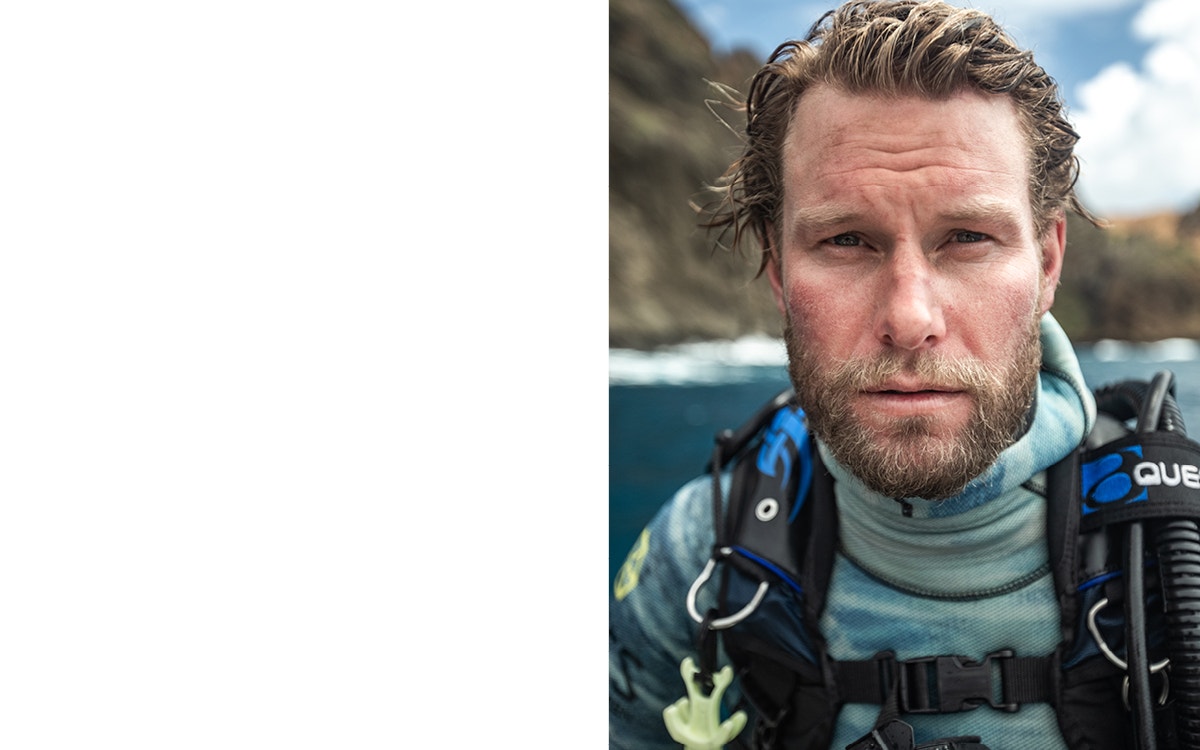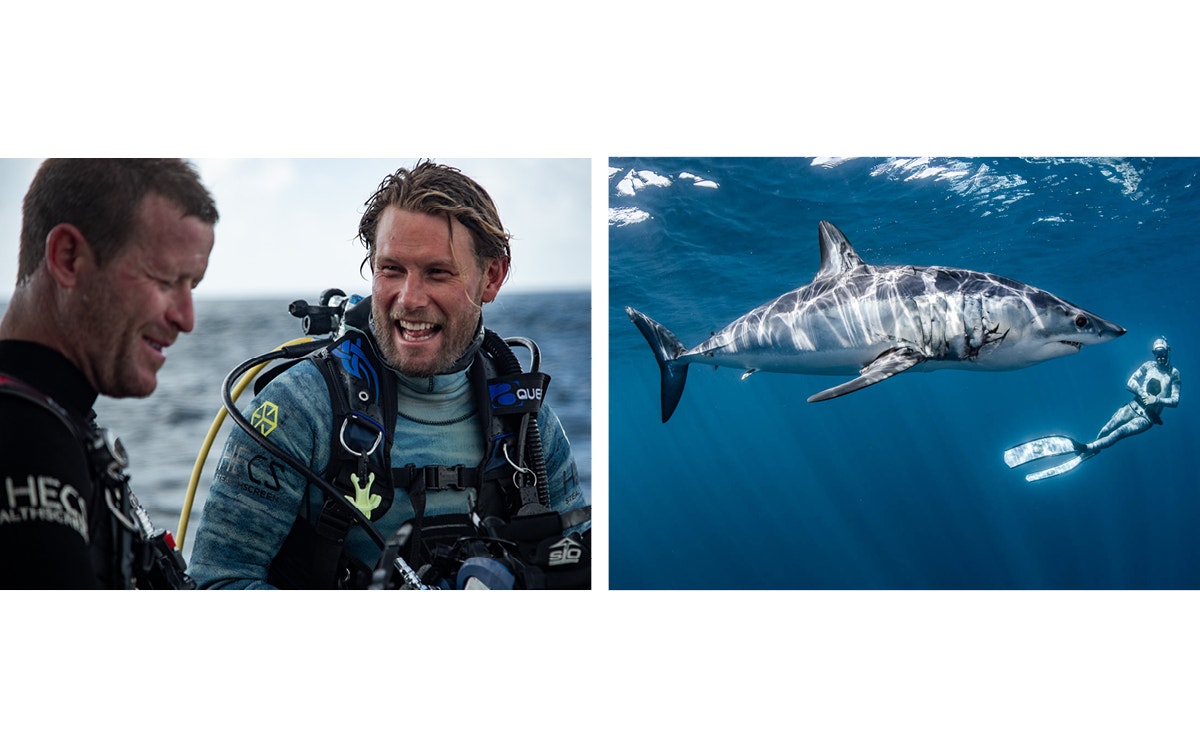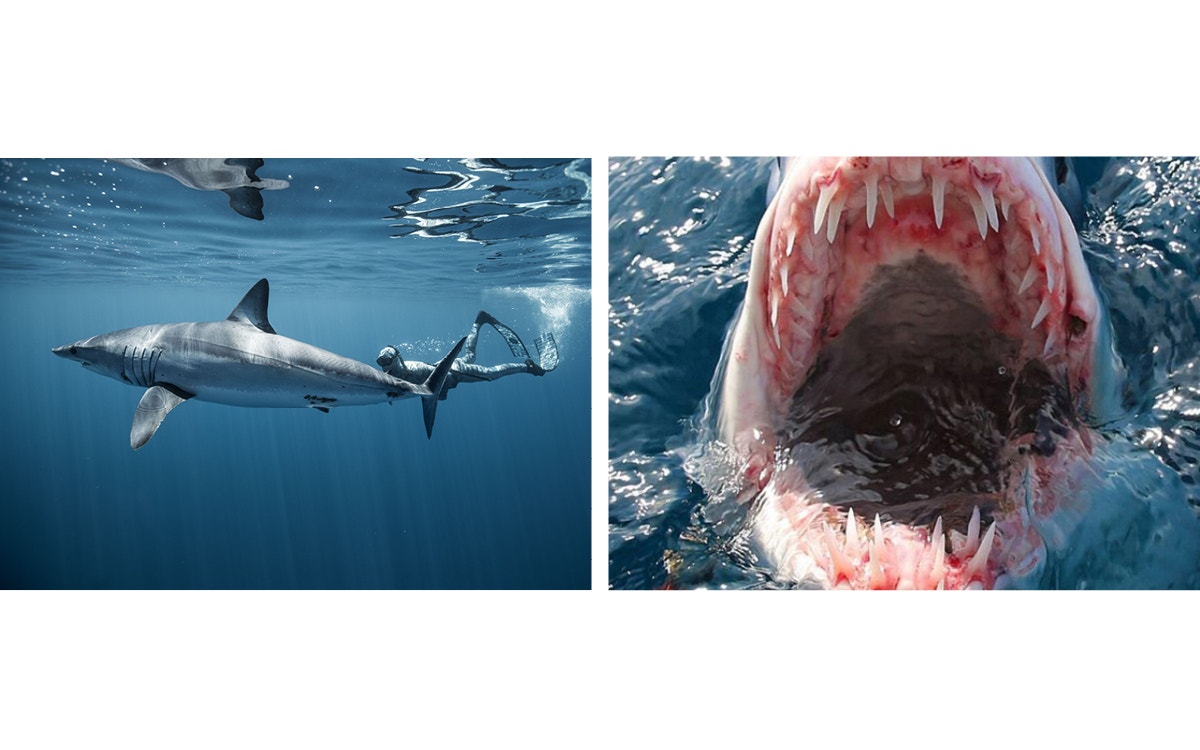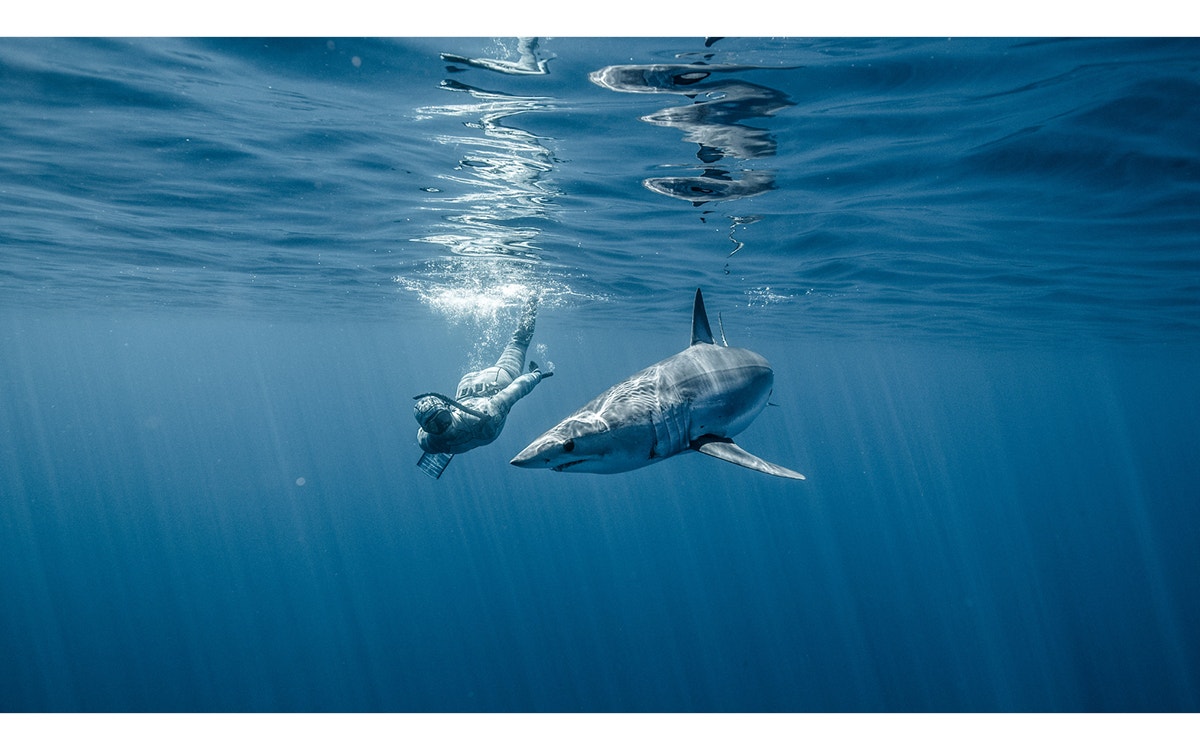Riley “Shark Man” Elliot is a leading expert on the world’s most famous predator. He had a chat with us about how to co-exist with the sharks living off our shores.
Riley Elliot is spending his summer finishing up his PhD before filming a Discovery Channel documentary. Right now he’s satellite tagging blue sharks, but come March he’ll be diving with Mako sharks off the Coromandel: all in the name of conservation.
Here in New Zealand, each summer brings us a new shark panic. As a marine scientist, wildlife presenter, and keen fisherman Elliot has nothing but respect for the animal we ingrates call “Jaws”. He explained some common misconceptions about the beast.

What are the most common sharks spotted during the NZ summer months?
Bronze whalers predominantly, because they are our most common coastal water species. They are bronze in colour and generally between 3-7ft in length. They’re the classic ones we see cruising the shoreline just behind the breakers.
While people may see this as them 'waiting to get us', when you apply some biological understanding, it's evident that they are just there because they are utilising the whitewater to increase oxygen uptake so that they don't have to swim to breathe.
In addition to bronze whalers, people on fishing boats will regularly also see hammerheads, blue sharks, mako sharks, the odd thresher shark, and sometimes - if you’re lucky - even the endangered great white shark.
How can we best share the water with these animals?
Through simple respect. What I mean by that is an understanding that the ocean is their realm and we are exploiting that environment for our desire. We do very little to help grow that environment, and they do a lot. So a little bit of respect goes a long way.
Tips to employ that respect are: if you see a shark, say “wow, that's amazing,” and enjoy the experience as it’s rare. You can then calmly make your way out of the water, while keeping eye contact with the animal. Don't panic and splash around, that will only entice curiosity.
If you catch a shark while fishing then when at the side of the boat, simply cut the line as close to the hook as possible. Don't worry, the hook will rust out quickly.

How are warmer oceans affecting sharks in New Zealand?
I have personally observed a greater presence of more warm water species like adult hammerheads, along with tropical fish species like mahi mahi, which are moving further south with warm water currents.
Warmer oceans are not causing us to have more sharks, however. That seems to be a myth likely associated with the fact that warmer water likely means more people in the water, and thus increased observation of sharks that are there all the time anyway. So we need to be aware of human bias in our judgement of the natural world.
How likely is a shark attack, really?
I could literally list all the items in my office right now, from pencils to staplers and factually tell you that each of them kill more people globally every year than sharks do. That's a fact, but because shark attacks are seemingly a far more gruesome and terrifying way to go, simply because it's an unknown, we fear it more than common threats like stationary, or much more dangerous things like driving a car.
The honest truth is that, on average, six people die from shark attacks a year globally. That makes it very, very, very rare. The way we should look at such a statistic is with awe for the sharks, and that they are pretty bloody good at not attacking us, given how many of us are in their environment and how easy we would be to catch.

Is the "punch them in the gills/nose to scare them off" thing true?
Yes. Those are sensitive areas for the shark. Sharks don't have hands or a voice, so if they are investigating an item/us, they only have their teeth. Imagine if you bit into something you weren't sure was food or not, and it smacked you in the face. You would likely get the hell out of there.
Is there anywhere I can go in New Zealand to see sharks in their natural habitat?
The ocean! People are always so surprised to see a shark in the sea. That's where they live.
But if you want to have some control over sighting them, you can check out Kelly Tarlton's awesome shark tank, visit Stewart Island and check out the great whites from a cage, or simply go and explore our amazing big blue backyard and you may get lucky enough to see one.
Remember, if you see a shark, it's a good thing. It reflects a healthy marine ecosystem. Sharks regulate fish populations, and maintain the health and stability of ocean environments.

Photo credit: Riley Elliot, Shawn Heinrichs, Amber Jones

